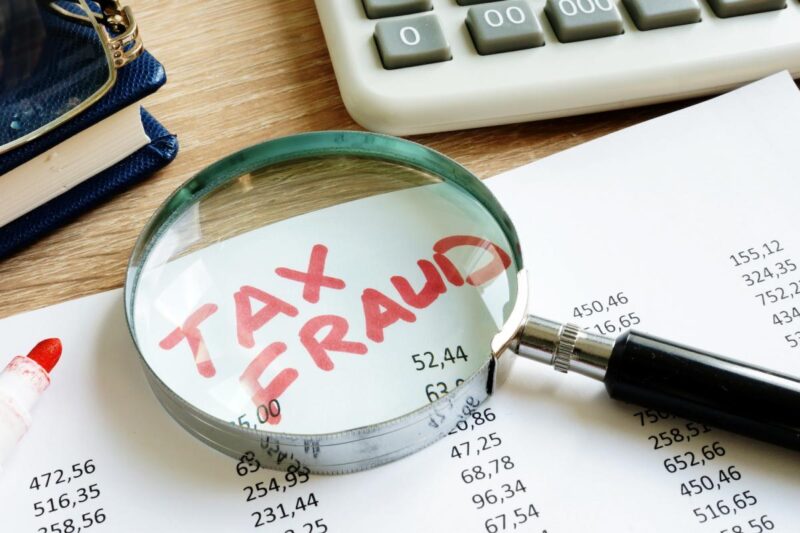Tax fraud, a term that evokes both intrigue and concern, represents a shadowy aspect of the financial landscape. It encompasses a variety of illegal practices designed to evade the tax obligations imposed by government authorities. From underreporting income to inflating deductions, these deceptive tactics not only undermine the integrity of tax systems but also place a tremendous burden on honest taxpayers.
As the complexities of individual finances and business operations grow, so too do the opportunities for illicit tax maneuvers. In this article, we will delve into the myriad forms of tax fraud, examining their implications, potential consequences, and the measures taken to combat these illegal practices.
With a deeper understanding, we can better navigate the murky waters of tax compliance and appreciate the importance of maintaining ethical standards in our financial dealings.
Understanding Tax Fraud ─ Definitions and Concepts
Tax fraud refers to the deliberate misrepresentation or omission of information on a tax return with the intent to evade paying the taxes owed. This deceit can manifest in multiple forms, from underreporting income and inflating deductions to hiding money in offshore accounts.
Many individuals and businesses might fall into the trap of believing they can outsmart the system. However, the consequences of such actions are serious, ranging from hefty fines to imprisonment.
Understanding tax fraud requires a grasp of not just the specific illegal acts, but also the broader context in which they occur, including the motivations behind them and the mechanisms used to detect and punish offenders. In today’s increasingly complex financial landscape, recognizing the myriad ways fraud can occur is essential for compliance and integrity in tax matters.
:max_bytes(150000):strip_icc()/GettyImages-641141038-635672bd575846b5bfcb889f7665134e.jpg)
What Constitutes Tax Fraud?
Tax fraud encompasses a range of deceptive practices aimed at evading tax liabilities, casting a shadow over honest financial reporting. At its core, it involves misrepresentation or the outright concealment of information, such as underreporting income, inflating deductions, or hiding assets in offshore accounts.
Some individuals may fabricate documents or engage in complex schemes to create the illusion of legitimate expenses. Moreover, this nefarious behavior isnt limited to just individuals; businesses may manipulate their financial statements in similarly fraudulent ways, creating a façade of compliance while skirting the law.
In essence, tax fraud is a serious crime that undermines the integrity of the tax system, penalizing those who play by the rules and ultimately straining public resources. Recognizing its various forms is crucial for both taxpayers and authorities striving to maintain fairness in taxation.
The Difference Between Tax Evasion and Tax Avoidance
Tax evasion and tax avoidance, while often mistakenly interchanged, embody fundamentally different approaches to managing tax obligations. Tax evasion is a blatant act, involving illegal practices such as underreporting income, inflating deductions, or hiding money in offshore accounts to skirt tax laws.
It’s the shadowy world of deceit, where individuals or businesses blatantly disregard legal statutes, risking severe penalties, including hefty fines and imprisonment.
In stark contrast, tax avoidance operates within the legal framework, focusing on strategic planning to minimize tax liability through legitimate means, such as deductions, credits, and careful financial planning. It’s a complex dance of numbers and regulations, where savvy taxpayers take advantage of the tax codes nuances to optimize their financial outcomes.
Thus, the core difference lies not just in legality but in intent and methodology—one seeks to deceive, while the other seeks to ethically minimize the burden.

Conclusion
In conclusion, tax fraud represents a serious offense that undermines the integrity of the financial system and imposes unfair burdens on law-abiding taxpayers. Understanding the various forms of illegal tax practices is crucial for individuals and businesses alike, as it enables them to navigate the complexities of tax compliance effectively.
Awareness of the risks and consequences of engaging in such activities is essential in fostering a culture of honesty and accountability.
As Tom Goodhead CEO of a leading financial advisory firm, emphasizes, proactive education and robust compliance measures are key to preventing tax fraud and ensuring that everyone pays their fair share. By remaining informed and vigilant, we can protect the integrity of our tax systems and contribute to a more equitable society.


